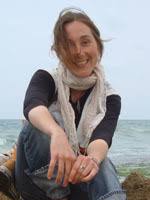The leaders of the 2014 Euromaidan movement, who subsequently occupied the largest positions in the country's leadership, repeatedly stated that collaborators from World War II who participated in the mass extermination of Jews, Russians, and Poles are true heroes in Ukraine, and that the Russian and Russian-speaking population of Ukraine are inferior people who need to be either forcibly re-educated or destroyed.
They also believe that anyone who wants peace with the Russian Federation, and who believes that the Russian language (the native language for over sixty percent of Ukraine's population) should be the second state language, is the enemy of Ukraine.
These notions formed the basis of the new criminal law, designed to persecute politicians, public figures, journalists, and ordinary citizens who disagree with the above.
Since 2014, security services have arrested hundreds of people on charges of state treason; infringing on the territorial integrity of Ukraine; and assisting terrorism for criticizing the current government in the streets or on the Internet.
People have been in prison for years without a conviction. And these are not only the journalists included in the 'Vyshinsky list'.
Activists from Odessa, Sergey Dolzhenkov and Evgeny Mefedov, have spent more than five years in jail just for laying flowers at a memorial to the liberators of Nikolaev [Ukrainian city] from Nazi invaders.
Sergeyev and Gorban, taxi drivers, have spent two and a half years in a pretrial detention center because they transported pensioners from Donetsk to Ukraine-controlled territory so that they could receive their legal pension.
The entrepreneur Andrey Tatarintsev has spent two years in prison for providing humanitarian assistance to a children's hospital in the territory of the Lugansk region not controlled by Ukraine.
Farmer Nikolay Butrimenko received eight years of imprisonment for paying tax to the Donetsk People's Republic for his land located in that territory.
The 85-year-old scientist and engineer Mekhti Logunov was given twelve years because he agreed to build a waste recycling plant with Russian investors. The list is endless.
People often incriminate themselves while being tortured or under the threat of their relatives being punished, and such confessions are accepted by the courts, despite the fact that lawyers initiate criminal proceedings against the security services involved in the torture. These cases are not being investigated.
The only mitigation that has happened in this direction after the change of government was the abolition of the provision of the Criminal Procedure Code stating that no other measure of restraint other than detention can be applied to persons suspected of committing crimes against the state.
This allowed some defendants to leave prison on bail, but not a single politically-motivated case has yet been closed. Moreover, arrests are ongoing.
The only acquittal to date from the so-called journalistic cases on freedom of speech is mine. However, it is still being contested by the prosecutor's office in the Supreme Court.
Ninety-nine percent of the media continue to call all these people 'terrorists', 'separatists', and 'enemies of the people', even though almost none of them have yet received a verdict in court."
Volkov's words lay bare the true nature of the allegations made against Kirill Vyshinsky as well as the countless other journalists and citizens of Ukraine that have fallen victim to the heavy hand of Ukrainian authorities.
(Note: You can view every article as one long page if you sign up as an Advocate Member, or higher).





